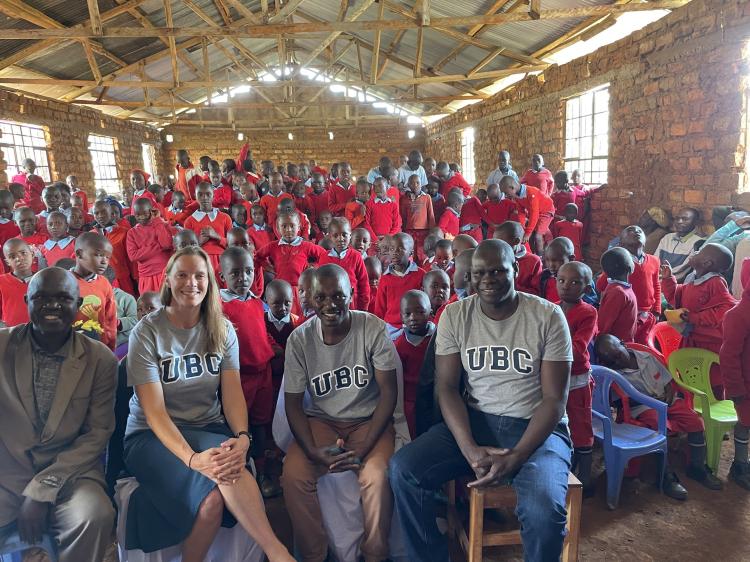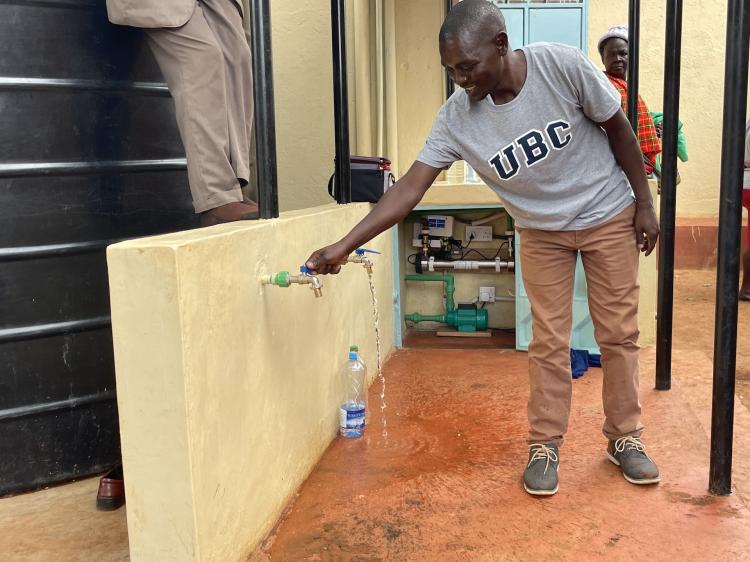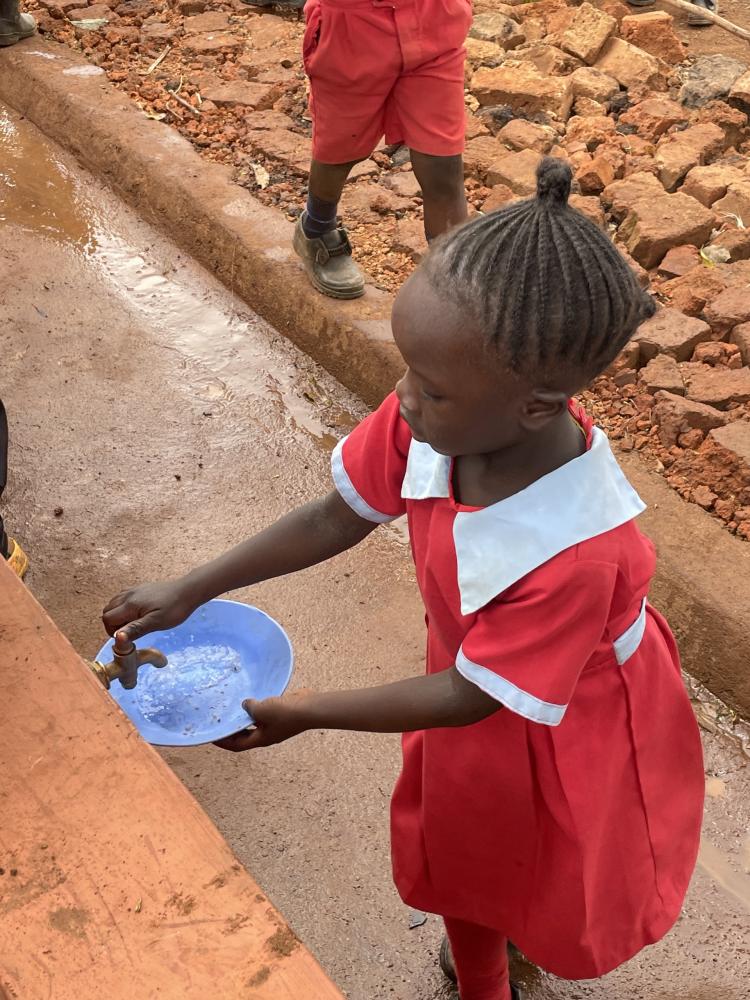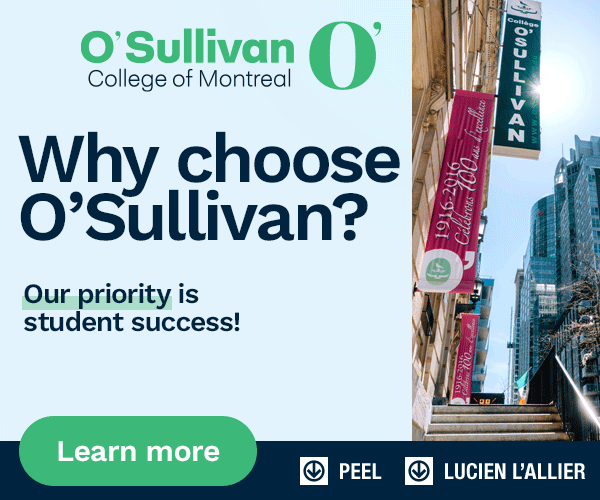In Kisii County, southwestern Kenya, collecting water was once a daily burden that defined the rhythm of life for children. Hours spent during the school day walking to creeks and springs that were often unsafe left little time for schoolwork and exposed the children to waterborne diseases. A new water treatment system, developed by UBC civil engineering researchers in partnership with the community, is helping to change that.

UBC researchers Dr. Sara Beck and Dr. Paul Onkundi Nyangaresi join students and staff of Rianyabayo Memorial Academy.
For Dr. Paul Onkundi Nyangaresi, a postdoctoral researcher at UBC's faculty of applied science who led the project, it's more than a professional achievement; it's personal.
Dr. Nyangaresi grew up in the region, where he witnessed firsthand the toll of poor water quality. "I've seen people die from diseases like cholera or amoebic dysentery due to unsafe water," he recalls. Those memories spurred him to pursue a path that would help bring clean water to communities like his own.
Solving the water challenge
His path was not straightforward. Dr. Nyangaresi grew up in a low-income family with parents who were both illiterate and unemployed. Recognizing education as a path out of poverty, he became the first in his village to attend university, securing a government scholarship to study mathematics and physics in Kenya. His determination to address water issues led him to China where he completed a PhD focusing on water disinfection using ultraviolet light. During his time there, he envisioned a low-cost, solar-powered UV water treatment system tailored for rural communities with limited access to electricity and high contamination rates.
Through his research journey, Dr. Nyangaresi found an ally in Dr. Sara Beck, an assistant professor in civil engineering at UBC. Dr. Beck had shifted from a career as a NASA flight controller to environmental engineering after seeing the importance of safe drinking water during a summer spent working in Uganda in 2003. Recognizing Dr. Nyangaresi's potential and the potential of UV light for solving challenges in rural communities, she secured funding to bring him onto her team.

Dr. Nyangaresi testing the new water treatment system at Rianyabayo Memorial Academy. (Photo credit: Dr. Sara Beck.)
The following year, Dr. Nyangaresi started a successful pilot project in his home community of Nyamesocho Village, incorporating solar power and locally available materials to ensure the system's sustainability and accessibility.
In the spring of 2024, the pair secured a MITACS Accelerate grant to scale up their project and build a rainwater harvesting and filtration system for a second site - a nearby school, the Rianyabayo Memorial Academy.
Clean water disinfected by sand and light
The water treatment system, constructed on the school grounds, uses sand filters and solar-powered UV LEDs to disinfect collected rainwater. The tanks can store and treat up to 10,000 litres of water, enough to meet the daily drinking and cooking needs of a community of 365 students. In periods without rainfall, the system provides clean water for up to 20 days at a rate of 500 litres per day.
"Before its installation, students often spent hours fetching untreated water, which led to a host of health issues. Now, they simply go to the taps for clean water, saving time and reducing health risks," said Dr. Nyangaresi. For teachers, this means fewer absences and healthier students.
The system's design was practical and informed by local input. Pipes were placed behind tanks to prevent tampering, and separate tap stations were set up for kitchen staff and students. The use of solar-powered UV light minimized reliance on chlorine, a chemical many rural communities find unpalatable.
"We were determined to design a system that was uniquely suited to local needs and customs," said Dr. Beck. "Using local expertise technicians within the village contributed their skills as plumbers, electricians, welders and masons ensured that the project was community-driven and more sustainable."

Rianyabayo Memorial Academy student collecting water from the tap. (Photo credit: Dr. Sara Beck.)
Dr. Beck's lab continues to develop decentralized water and wastewater treatment solutions, with an eye toward scaling the Kisii project for other rural communities. They are in discussions with Indigenous Services Canada to explore how similar low-cost water treatment systems could potentially benefit Indigenous communities in Canada, where access to clean water is a longstanding issue.
"The Kisii project shows how powerful it can be to combine academic research with real-world applications to address pressing global challenges, particularly in underserved communities," said Dr. Beck. "By combining research with community development, we hope to create real change while learning in the process."
For Dr. Nyangaresi, the Kisii project has brought his story full circle. "It's rewarding to apply my research to help my community," he said. "I feel like I've given back in a meaningful way."













